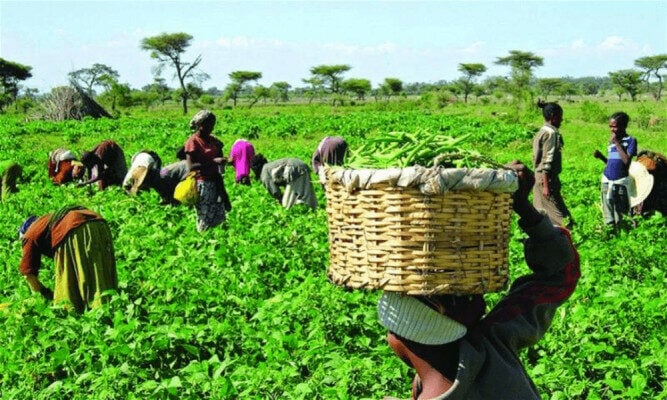For there to be all-year-round food sufficiency, Nigeria must embrace full diversification into large-scale mechanised agriculture.
Chairman of the Akwa Ibom State House of Assembly Committees on Health, Nutrition and Food Security, Hon. Moses Essien, who made this advocacy, has called for the “development of a robust and sustainable agribusiness as a strategic pathway to reviving Nigeria’s struggling economy.
Addressing the 4th Agribusiness Roundtable International Conference organised by the Nigeria Agribusiness and Agro-Industry Development Initiative (NAADI), in Uyo, the state of capital, Essien, explained that the conference was “a veritable platform for uniting critical stakeholders, policymakers and investors to drive growth in the agricultural value chain.”
The conference, which has as theme; “Resilient Agribusiness: A Sustainable Solution for a Changing World,” explored the role of agribusiness in tackling economic instability, climate threats, and rising food insecurity.
The Ibiono Ibom State Constituency representative noted that “a resilient agribusiness system has the capacity to adapt and thrive in the face of global challenges while also generating employment, enhancing trade, and diversifying Nigeria’s revenue base.”
He lauded the agricultural vision of governor Umo Eno, under the ARISE Agenda blueprint of his administration, noting the strides especially in large-scale farming, rural enterprise development, and youth-focused agricultural training.
According to Essien, these initiatives were gradually transforming agriculture from a subsistence activity into a competitive enterprise.
He pointed out that his Ibiono Ibom local government area, remains a strategic agricultural hub with vast fertile lands suitable for the cultivation of cassava, maize and oil palm, charging that communities and the nation must now move from small-holder farming to commercial agribusiness.
The lawmaker identified mechanisation, agro-processing, value addition, and access to finance as key drivers of progress in the sector, adding that agribusiness has the potential to stimulate growth in related sectors such as manufacturing, logistics, finance and technology.
“As lawmakers, we remain committed to supporting agricultural transformation through enabling legislation, rural infrastructure development, agricultural financing frameworks, and private sector participation,” Essien assured.
He urged conference participants to translate discussions into practical collaboration and measurable outcomes that would reposition Nigerian agribusiness for global competitiveness.
Essien commended NAADI for its consistency in promoting agribusiness development and expressed optimism that the resolutions from the conference would accelerate economic diversification, job creation, and food security across Nigeria.





